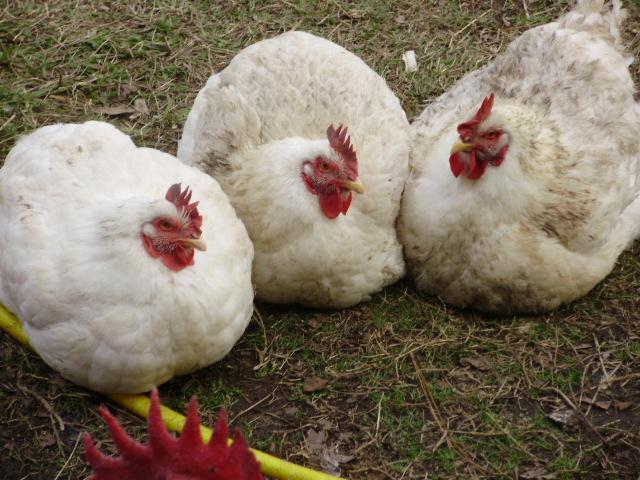I have had some that lived to be a little older 4 years old.
The girls were dust bathing on this day.
My girls were too big to fly on the roost. I sometimes would put them on the roosts, if at coop closing time, their eyes were sparkling with envy to get on the roost. I would lift them up and place them on the roost. I had to take them off and place them on the ground the next morning. Sometimes, they just chose to sleep on the ground in their chicken house. I made their ground sleeping arrangements as comfy as possible.
I took my time and studied the breed to find out how I could keep them around longer. Of course there was very little information to no information out there because no one really keeps this breed around a long time. There are a few other people on this forum who have raised Cornish as pets and I am one of them. My girls had an excellent chicken life. Anyone who knows me know that my animals have 5 star status in terms of health, nutrition and living arrangements. I wouldn't have it any other way.
This is what I did that allowed them to live so long.
1. Do not overfeed.
2. Free range as often as possible (daily if you can). Free ranging also promotes exercise. They have to walk and run to get those juicy bugs.
3. Place feeder several feet away from them, so that they have to walk (exercise) to get their food.
4. Feed healthy snacks (fruits & vegetables)
5. Make sure that their living arrangements are functional for their needs. Some cannot fly on roosts at night. They may have to sleep on the floor.
6. Do not place FEMALES with roosters. Roosters will try to mate with them. Their legs cannot take the extra rooster weight on them and neither can their stress level.
I can give this information because I have experience in raising Cornish as pets.
To answer your questions:
Hucklekree wrote:
So down to the actual inquiries:
How old can cornish x get?
Mine lived past 4 years old
Is it a good idea to let them get older or should they be processed?
That is a personal choice. If they are not having any problems or not suffering from any leg problems, you can let them live to be older.
Is is worth it to let them breed?
I don't know because I didn't let mine breed. The extra weight on them to breed would be too much for them to carry on a daily basis (in my opinion). Possible leg problems could arise.
Are they even interested in breeding?
If I were a Cornish hen, I probably wouldn't be interesting in breeding. I would probably want to live my life out in peace and harmony without a rooster putting his extra weight on me to breed all the time.
Good luck with yours. Keep us posted.





